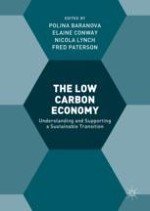2017 | OriginalPaper | Buchkapitel
2. Establishing Framework: Sustainable Transition Towards a Low-Carbon Economy
verfasst von : Juan Martinez-Covarrubias, Jose Arturo Garza-Reyes
Erschienen in: The Low Carbon Economy
Aktivieren Sie unsere intelligente Suche, um passende Fachinhalte oder Patente zu finden.
Wählen Sie Textabschnitte aus um mit Künstlicher Intelligenz passenden Patente zu finden. powered by
Markieren Sie Textabschnitte, um KI-gestützt weitere passende Inhalte zu finden. powered by
